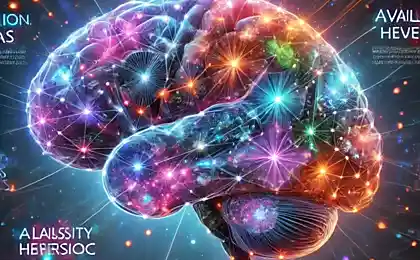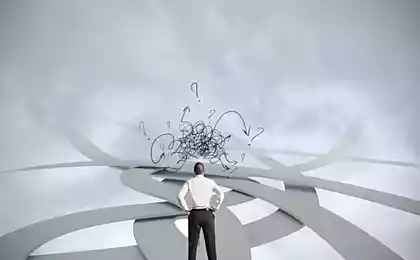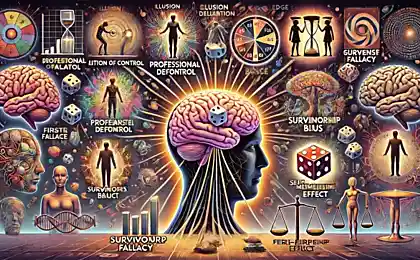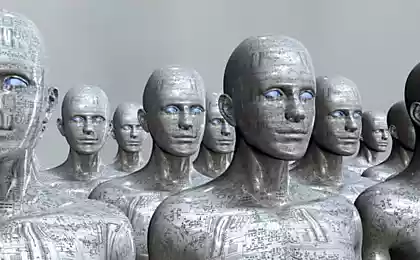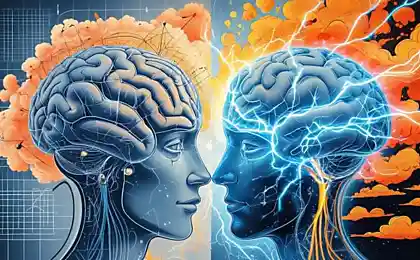516
5 "traps" of consciousness
The human brain can perform 1016 operations per second. It is much more than even the most powerful computer, but this does not mean that its possibilities have no limit. An ordinary calculator will perform some calculations much better and faster. Besides, we can fall into the trap of his own consciousness, the result of which can draw the wrong conclusion and make bad decisions. Such traps are called "cognitive distortions."
The gambler's fallacy
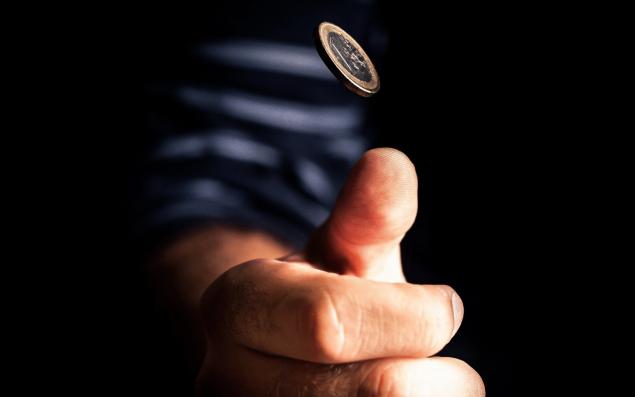
The essence of this error is that we attach great importance to what has already happened. We are confident that these events can in any way affect what will happen in the future. For example, if tossing a coin five times in a row it comes up heads, for our consciousness the probability of tails next time grows. Although in reality it will remain the same 50: 50.
Works similarly astray on account of a good luck.
Post-shopping rationalization

Each of us was at least once case when buying something unnecessary, broken, or very expensive, he tried to reassure himself that it was worth it. It is in our minds triggered the program, which helps to feel better after we do something stupid.
Neglect of probability
![]()
Few of us afraid to go in the car, but almost everyone experiences the feeling of fear when coming on Board the plane. And at the same time all know that statistically the chances of dying in a car accident 60 times more than in a plane crash. This is due to the fact that to be in the air for humans is unnatural and a flight is associated with danger, but the brain does not perceive statistical information.
Selectivity observation

This is a trend around suddenly to notice something new, which up to this point was not. The traps can be anything. For example, you can take the pregnant women after they became pregnant, suddenly began to notice in the streets a large number of other pregnant women. Whatever it was, the reason lies in the fact that people just beginning to pay attention to the object of observation.
The effect of negativity
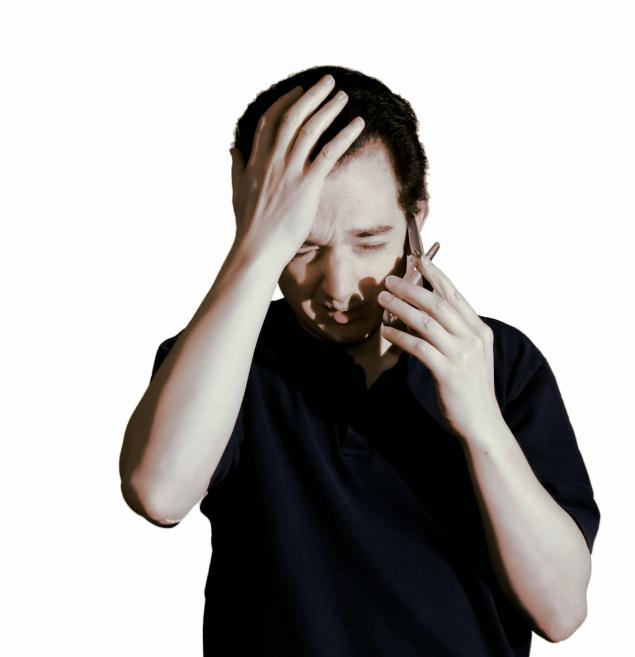
People tends to pay more attention to bad news – and it does not indicate the presence of psychological abnormalities. Scientists believe that we subconsciously perceive bad news as more important. Also, bad news makes us more confidence – perhaps because we are good seem too suspicious (or boring).
Source: /users/448
The gambler's fallacy

The essence of this error is that we attach great importance to what has already happened. We are confident that these events can in any way affect what will happen in the future. For example, if tossing a coin five times in a row it comes up heads, for our consciousness the probability of tails next time grows. Although in reality it will remain the same 50: 50.
Works similarly astray on account of a good luck.
Post-shopping rationalization

Each of us was at least once case when buying something unnecessary, broken, or very expensive, he tried to reassure himself that it was worth it. It is in our minds triggered the program, which helps to feel better after we do something stupid.
Neglect of probability
Few of us afraid to go in the car, but almost everyone experiences the feeling of fear when coming on Board the plane. And at the same time all know that statistically the chances of dying in a car accident 60 times more than in a plane crash. This is due to the fact that to be in the air for humans is unnatural and a flight is associated with danger, but the brain does not perceive statistical information.
Selectivity observation

This is a trend around suddenly to notice something new, which up to this point was not. The traps can be anything. For example, you can take the pregnant women after they became pregnant, suddenly began to notice in the streets a large number of other pregnant women. Whatever it was, the reason lies in the fact that people just beginning to pay attention to the object of observation.
The effect of negativity

People tends to pay more attention to bad news – and it does not indicate the presence of psychological abnormalities. Scientists believe that we subconsciously perceive bad news as more important. Also, bad news makes us more confidence – perhaps because we are good seem too suspicious (or boring).
Source: /users/448



